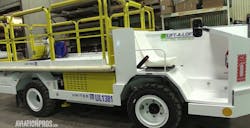Southwest Airlines Co. and American Airlines begin contract talks this week with pilots, with the carriers looking to control costs by having more flexibility in work scheduling and American's pilots seeking to reverse losses from 2003.
Southwest said it began negotiations Tuesday in Dallas with the union representing its 5,000 pilots. They last negotiated a contract in 1994 - a 10-year deal that was extended in 2004.
Southwest says its pilots are the best-paid Boeing 737 captains in the industry, although other carriers are believed to pay more to employees who fly bigger jets.
"We are proud that they're compensated so well, but we don't want to lose our low-cost advantage," said Ed Stewart, a Southwest spokesman.
Dallas-based Southwest is the only major U.S. carrier that remained profitable through the slump that followed the 2001 terror attacks, but it is challenged by high fuel costs.
Through the first six months of this year, Southwest spent more than $1 billion on fuel - a 67 percent jump from a year earlier. Labor costs rose nearly 12 percent from the first half of 2005 and remain the airline's biggest expense, at 38 percent of spending compared to 26 percent for fuel.
The pilots' big issues are pay, medical benefits and productivity rules, said Joseph Eichelkraut, president of the Southwest Airlines Pilots Association. He said pilots would accept more work for more compensation, but he declined to discuss specifics.
Eichelkraut said Southwest's pilots fly on average more than 65 hours per month, the highest in the industry.
Separately, Southwest pilots are voting through mid-October on an agreement under which the airline promises to consult pilots before signing code-sharing agreements, such as the one that allows Southwest to sell seats on flights operated by ATA Airlines Inc.
Pilots at major airlines fear their companies will use such deals to shift flying to lower-paid pilots at smaller carriers. Southwest tried to ease those fears by vowing in the side agreement to grow 5 percent per year through 2010.
At Fort Worth-based American, the nation's largest carrier, the Allied Pilots Association will present its opening proposal Wednesday morning. American asked the union to start negotiations early - a 2003 contract can be changed in May 2008. (Under a federal law designed to prevent strikes, labor contracts in the airline industry don't expire but instead can be amended at the end of their terms.)
Sue Gordon, a spokeswoman for American, said terms of the 2003 contract give American less flexibility than other airlines in scheduling pilots and how many hours they can work.
"The goal is to look at those provisions that put us at a competitive disadvantage," she said. "Southwest and Continental have far more productive models. Southwest in particular operates under a high-productivity model."
American's pilots are looking to recover some the concessions they gave up in 2003, when they agreed to wage and benefit cuts to keep the airline out of bankruptcy, said union spokesman Denis Breslin.
Pilots enter the talks still angry over bonuses given this year to about 1,000 management employees. Three senior executives got more than $1 million. After an uproar, the company changed the bonuses from cash to mostly stock, but union leaders still accused executives of putting their welfare above that of front-line employees.
"Management set the tone (for the contract talks) earlier this year with the bonuses," Breslin said.
American, a unit of AMR Corp., has 8,300 active pilots, Gordon said.
American is also negotiating with about 180 dispatchers. It has not started talks with flight attendants and ground workers, whose contracts also can be changed in 2008.
Airlines have been cutting jobs to reduce spending. The Department of Transportation reported Tuesday that U.S. passenger airlines have cut full-time employment at least 5 percent in 11 of the last 12 months as they try to offset fuel costs.
Airline stocks rose Tuesday as crude-oil futures fell to a six-month low, a hopeful sign of the direction of jet fuel.
In trading on the New York Stock Exchange, AMR shares rose $1.08 or 4.7 percent, to $24.25, and shares of Southwest rose 22 cents or 1.3 percent, to $16.71.
News stories provided by third parties are not edited by "Site Publication" staff. For suggestions and comments, please click the Contact link at the bottom of this page.





